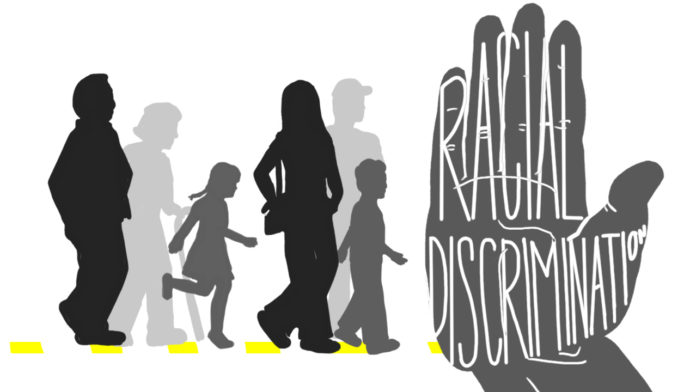This country needs to wake up. People need better awareness of the fundamentally challenged society African-Americans live in. Flaws in our justice system, economic policy and social awareness have been an issue since this country was established.
We’ve been raised in a country filled with stereotypes and improper practices in regards to African-Americans. As a country, we must notice these flaws and question why things seem to typically be a certain way rather than just accepting what seems to be the status quo.
We should pay more attention to government representatives in charge of changing policy to aid this damaged social climate. We should be more aware of the way our lawmakers view members of different ethnic communities, along with any preconceived notion that may be attached. We shouldn’t judge people we see struggling from unemployment, but rather, try to find solutions.
For far too long, America’s overall response to struggling African-Americans was for them to simply pull up their bootstraps and find a way to do better and try harder. Instead of trying to truly trying to see their struggles on all sides, we fall to accepting common stereotypes: “They have no excuse, they should just work harder,” “They’re just lazy, thats why they don’t have a job,” or “If they just work hard they can be successful.” Rare is it to find people cognizant of the disparities between races systematically throughout the United States. There needs to be an awareness that things aren’t equal, and even if constitutional laws say things are, change is still necessary.
A recent study led by researchers at Stanford, Harvard and the Census Bureau suggested that income inequality between blacks and whites is not based on coincidence.
African-American boys raised in the United States earn less later in their adult life than white boys, even if they were raised under similar economic conditions.
“White boys who grow up rich are likely to remain that way. Black boys raised at the top, however, are more likely to become poor than to stay wealthy in their own adult households,” the New York Times reported in its article on the study’s findings.
The study followed over 10,000 boys who came from what was considered to be a rich family. The experiment concluded that black men, even when growing up next to wealthy white men, get along worse than 99 percent of them in America.
Struggles and misconceptions surrounding the African-American community seem to start with unemployment and incarceration.
The Washington Post reported that African-American men are two times more likely to be unemployed than white people.
“This fact was as true in 1954 as it is today. But the economic picture for black Americans is far worse than those statistics indicate. The unemployment rate only measures people who are both living at home and actively looking for a job,” the article reports.
Part of this struggle has to do with the striking numbers in which African-American men are incarcerated in the United States. With disparities in arrests and sentences, the growth that the prison population has seen within the last 40 years has severely affected the black community. Many African-Americans are unable to get jobs to begin with because of these incarcerations. These numbers begin to perpetuate the cycle that we currently are in as a society.
Reform is necessary to fix some of the gaping holes between the white community and black community. While the change may not happen quickly, the problem must at least be noticed by the citizens of this country. Without the awareness of a problem, it can never be solved. We must look past what we think of as being due to coincidence, and instead start adapting our mindset to help craft a reformed society.






